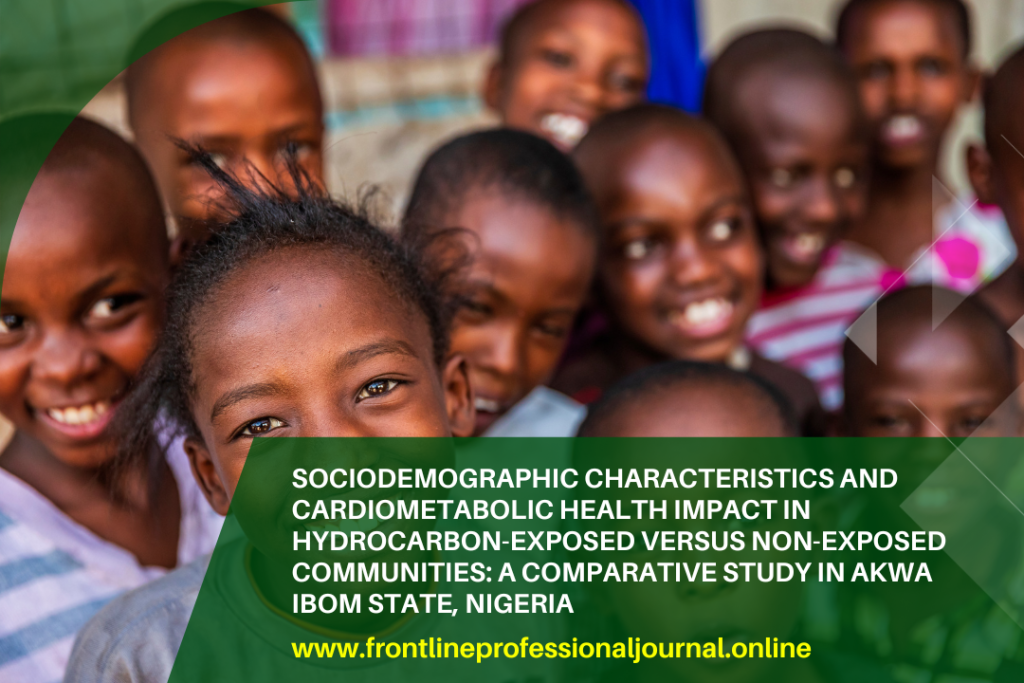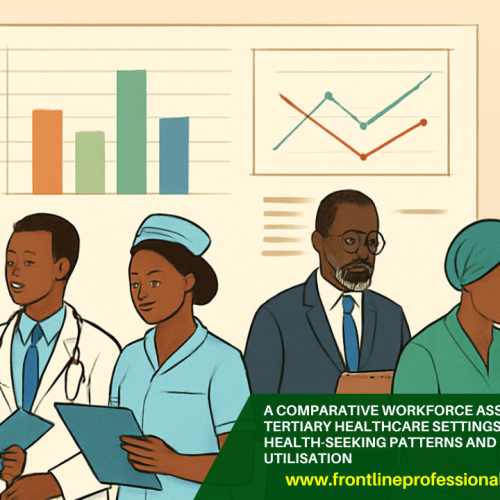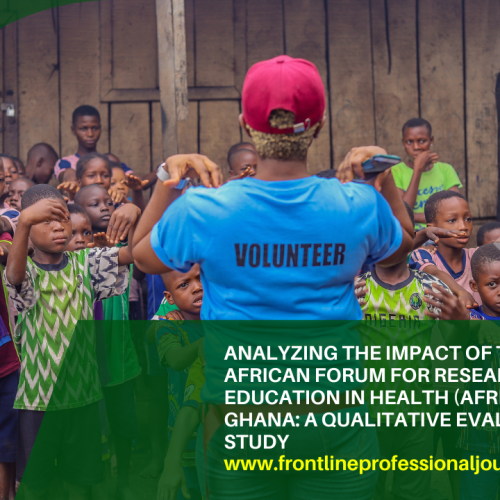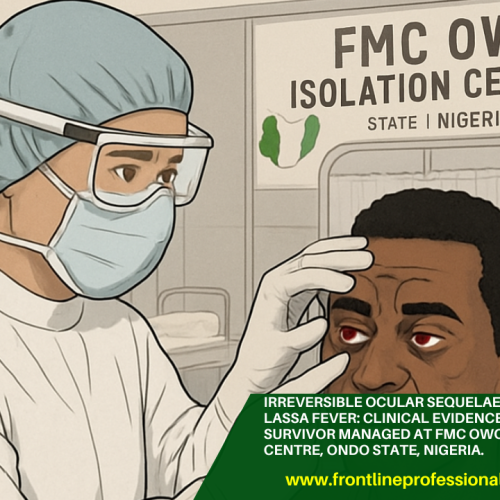
Authors: Essiet, Akanimo Gordon, Gordon, Anietie Akanimo., Elgado, Hajara., Ime, Aniema Abasi Wilson., Chieke,
Okechukwu F., and Essien, Atim S.
Citation: Essiet, Akanimo Gordon, Gordon, Anietie Akanimo., Elgado, Hajara., Ime, Aniema Abasi Wilson., Chieke,
Okechukwu F., and Essien, Atim S. (2025). Sociodemographic characteristics and cardiometabolic health impact in
hydrocarbon-exposed versus non-exposed communities: A comparative study in Akwa Ibom State, Nigeria.
Frontline Professionals Journal 2(10), 149-161
ABSTRACT
Hydrocarbon pollution represents a pressing environmental health challenge in Nigeria’s Niger Delta, particularly in Akwa Ibom State, with notable impacts on cardiovascular and metabolic health. This comparative cross-sectional study surveyed 380 adults, evenly divided between hydrocarbon-polluted and non-polluted communities, to assess how sociodemographic factors, knowledge, attitudes, and perceptions interact with actual exposure to affect health outcomes. Structured questionnaires gathered data on demographic characteristics, awareness, attitudes, perceived air quality, stress, willingness to participate in cardiometabolic screenings, and trust in local health services. Statistical analyses included comparisons of proportions and multivariate logistic regression to explore effect modification by sex, age, and proximity to pollution sources. Key findings showed significantly higher awareness of pollution-related health risks among residents of polluted areas (83.2%) compared to those in non-polluted communities (63.7%). Perceptions of poor air quality (76.8% vs. 46.3%) and reported stress due to pollution (65.3% vs. 37.9%) were also more prevalent in polluted communities. While the willingness to attend cardiometabolic screenings was greater in polluted areas (75.3% vs. 61.6%), trust in local health services was paradoxically lower (47.9% vs. 54.7%). The analysis revealed that proximity to pollution sources significantly modified the association with awareness (odds ratio 2.12), and age had a near-significant effect on stress (odds ratio 2.25), indicating that those living closer to pollution or who are older experience greater psychosocial and health burdens. No significant differences were found by sex. The results demonstrate that hydrocarbon pollution heightens community awareness and perceived health risks, increases psychosocial stress, and may amplify vulnerability to cardiovascular and metabolic conditions. The modifying effects of proximity and age underscore the need for geographically targeted and age-sensitive interventions. Strengthening trust in local health services is vital to improving prevention and management outcomes. An integrated approach combining environmental health initiatives with cardiometabolic disease prevention, particularly for high-exposure and older populations, is essential to mitigate the dual biological and psychosocial impacts of hydrocarbon pollution in Akwa Ibom State and similar regions.








